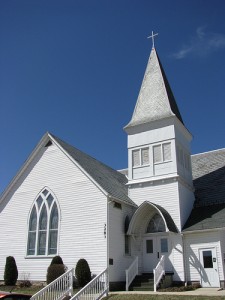secularism
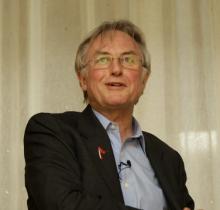
It was 2006’s “The God Delusion” that many credit with sparking a growing interest in atheism in the U.S. Along with best-selling books by the other members of the “Four Horsemen” of atheism—the late Christopher Hitchens, Sam Harris, and Daniel Dennett—Dawkins’ rising star mirrored the growth of atheism in the last decade.
In 2012, the Pew Research Center found 5.7 percent of Americans identified as either atheists or agnostics, up from 3.7 percent in 2007.
“Richard Dawkins has done a lot to bring atheism to a whole new generation,” said Phil Zuckerman, a sociology professor who studies atheism and who also credits Dawkins with speaking out against the pedophilia scandal within the Catholic Church. “On the other hand, Dawkins seems to embody everything that people dislike about atheists: He is smug, condescending and emits an unpleasant disdainfulness. He doesn’t ever seem to acknowledge the good aspects of religion, only the bad. In that sense, I think he doesn’t help atheism in the PR department.”
One of Dawkins’ biggest missteps came in 2011, when he blasted Rebecca Watson, a young atheist activist who wrote about feeling sexually harassed at a freethought conference. In a now infamous series of comments posted to the blog Pharyngula, Dawkins wrote in a message titled “Dear Muslima,” “Stop whining, will you? ... For goodness sake grow up, or at least grow a thicker skin.”

Quebec’s government this week introduced its much-discussed Charter of Quebec Values, which would ban “overt and conspicuous” religious symbols worn by government employees.
Pushing the twin ideals of secularism and separation from Canada, the Parti Quebecois’ plan would prohibit public employees from wearing large crosses and crucifixes, Islamic headscarves, Sikh turbans, and Jewish yarmulkes as a way to establish “religious neutrality” in public.
The prohibitions would apply to civil servants, teachers, law enforcement officers, firefighters, doctors, nurses, and public day care employees.

Nearly half of all Americans — 48 percent — say the growing number of nonreligious people is “bad for society,” according to a poll conducted by the Pew Forum on Religion and Public Life.
But about the same amount — 50 percent — say the rise in nonreligious people is either a good thing (39 percent), or doesn’t matter (11 percent).
The findings flesh out last year’s Pew Forum survey on the “nones,” the one in five Americans who report no formal religious affiliation. But the results also illustrate the divided reactions to this trend between those who are religious and those who are not.
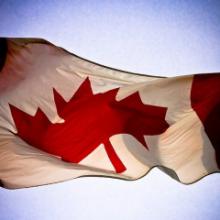
TORONTO — A new national study shows that while Canada remains overwhelmingly Christian, Canadians are turning their backs on organized religion in ever greater numbers.
Results from the 2011 National Household Survey show that more than two-thirds of Canadians, or some 22 million people, said they were affiliated with a Christian denomination.
At 12.7 million, Roman Catholics were the largest single Christian group, representing 38 percent of Canadians; the second largest was the United Church, representing about 6 percent; while Anglicans were third, representing about 5 percent of the population.
Observers noted that among the survey’s most striking findings is that one in four Canadians, or 7.8 million people, reported they had no religious affiliation at all. That was up sharply from 16.5 percent from the 2001 census, and 12 percent in 1991.
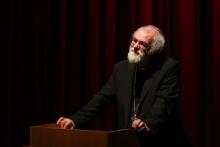
CANTERBURY, England — New figures from the 2011 Census show that the number of people who identify as Christians in England and Wales has fallen by 4 million over the last 10 years.
The data shows that numbers fell from 37.3 million in 2001 to 33 million last year.
The statistics came as the outgoing archbishop of Canterbury, Rowan Williams, claimed that English cathedral congregations are growing dramatically, challenging the claim made by secularists that the Church of England is fading in Britain.
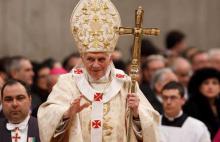
VATICAN CITY — Fifty years after the Second Vatican Council revolutionized life inside the Roman Catholic Church, hundreds of bishops from around the world are gathered in Rome to confront an external threat: a mounting tide of secularization.
The Synod of Bishops on “New Evangelization” brings together 262 top church leaders for a three-week summit at the Vatican, joined by lay experts and representatives of other Christian groups.
In a wide-ranging speech aimed at setting the tone for the bishops' discussion, Washington Cardinal Donald Wuerl called on Christians to “overcome the syndrome of embarrassment” about their faith with a more assertive offense against the “tsunami of secular influence” that is sweeping away “marriage, family, the concept of the common good and objective right and wrong.”
Wuerl has been appointed by Pope Benedict XVI as the “relator general” of the synod, with the key task of summing up the main points of the bishops' discussions.
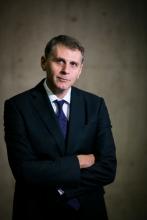
Jacques Berlinerblau wastes no ink in his new book trying to flatter his fellow nonbelievers.
"American atheist movements, though fancying themselves a lion, are more like the gimpy little zebra crossing the river full of crocs," he writes in How to Be Secular: A Call to Arms for Religious Freedom.
Ouch.
"In terms of both political gains and popular appeal, nonbelievers in the United States have little to show. They are encircled by cunning, swarming [religious] Revivalist adversaries who know how to play the atheist card."
Berlinerblau, a Georgetown University biblical scholar who teaches a course on secularism, wants to rescue that little zebra. But his plan may be a hard-sell with some atheists — he wants atheist groups to drop their black-and-white opposition to religion and its adherents in order to preserve the Constitution's guarantee of freedom of religion.
"The gimpy zebra remark was a little goofing on this over-the-top chest-thumping that emerges from Movement Atheists," he said in an interview, referring to atheist organizations with political goals, like American Atheists. "They wildly overestimate their numbers. They tend to overestimate the efficacy of their activism. They underestimate how disciplined and organized their adversaries in the religious right are, too."
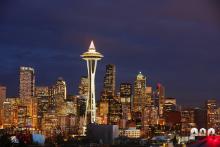
SEATTLE — In 1962, when my younger brother was just four years old, this city perched on the nation's northwest rim held a World's Fair that imagined a glistening future.
Grounded in a vision of science and technology, the Century 21 Exposition foresaw a steady economic expansion and an orderly modernity that would continue 1950s prosperity and stability far into the future.
They got the science and technology right. Seattle is now a world hub for software development and Internet commerce, as well as for the caffeine and jeans-clad lifestyle that fuel young techs.
As millions of Americans bow their heads next Thursday (May 3) for the annual National Day of Prayer, atheists, humanists and other nontheists will mark a day of their own.
The National Day of Reason - or "NDR" in the shorthand of the nontheist community - will also be held May 3, part protest, part celebration and totally godless.
